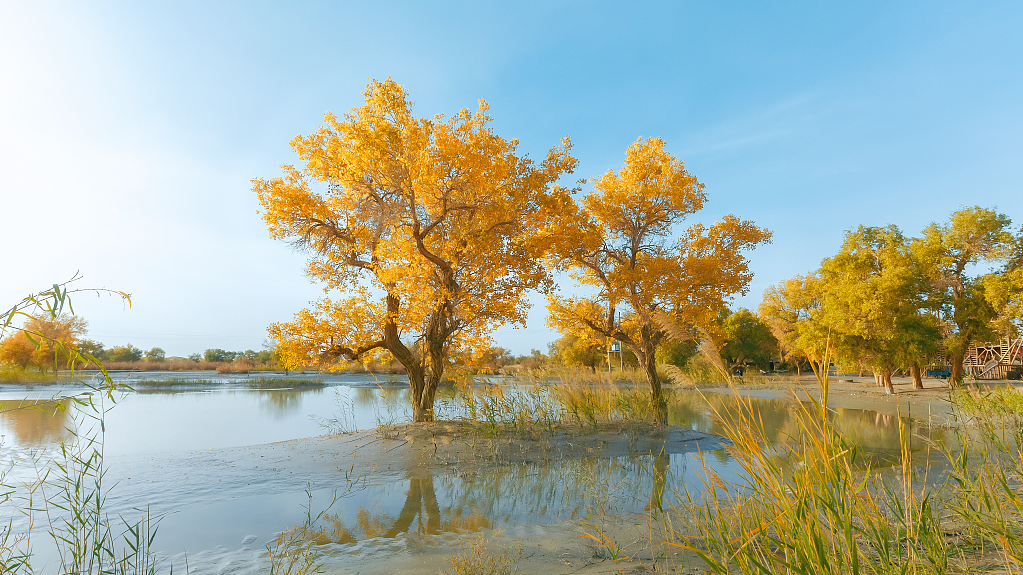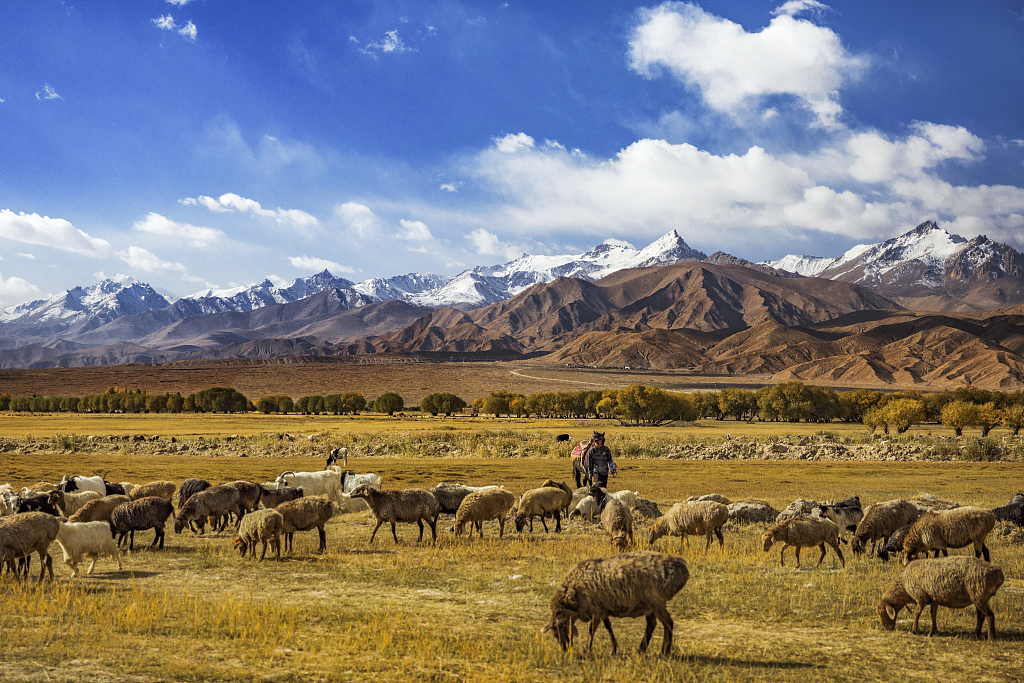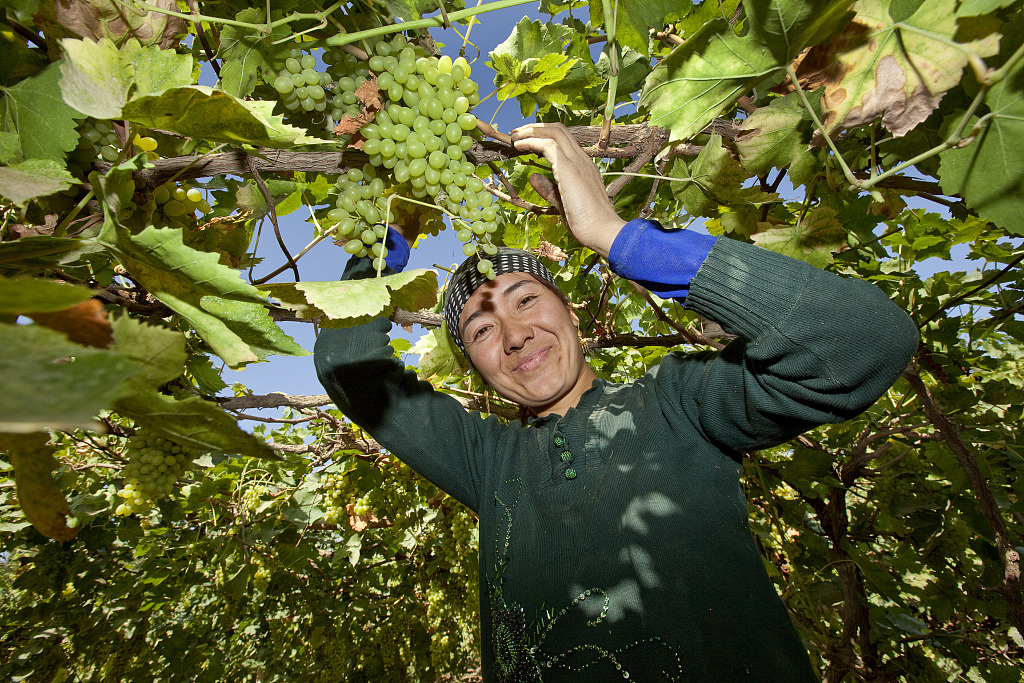

Aksu, a prefecture on the edge of the Taklamakan Desert in northwest China's Xinjiang Uygur Autonomous Region, used to be hit by sandstorms for nearly two months every year, but a three-decade forestation project has changed all that.
In recent years, the focus for Aksu has been on a green transformation, which finds the right balance between environmental protection and economic development.
Kekeya is the word in the Uygur language for green gullies or cliffs; it is also what people call an area in the northeastern suburbs of Aksu, where the sandstorms used to blow in from. But thanks to the Kekeya Green Project, that is now a thing of the past.

Beautiful scenery of Aksu in Xinjiang Uygur Autonomous Region, northwest China. /VCG Photo
"I am a native of Aksu. In 1987, a total of 37 staff members came here to start the Kekeya Green Project. There were lots of saline alkaline land, I thought it would be impossible to plant trees. But because of my country's trust and my family's support, I have persisted until now," said Mamat Imin Hamut, a forest ranger at the Kekeya Green Project in Aksu.
"Now, with the improvement of technology here, a lot of the work on the project is mechanized. The pits where we plant trees are all dug by a special tractor, and we use drip irrigation technology to water trees, which is more convenient than before," said Song Jianjiang, another forest ranger at Kekeya Green Project in Aksu.

Workers are picking grapes in Aksu. /VCG Photo
Now, Aksu has grown from desert in 1987 to encompass about 77,000 hectares of artificial afforestation in 2017. It has had more than 20 honors bestowed on it such as the "National Landscape Garden City Award." Some visiting foreign journalists shared their positive views on the project.

Tarim River in Aksu of Xinjiang. /VCG Photo
Aksu's green development did not stop there. In recent years, it gradually established fruit plantations and a national wetland park, always pushing to seek a balance between environmental protection and economic development.
Meanwhile, as the largest urban garden in southern Xinjiang, over 120 hectares Aksu National Wetland Park was set up in 2017, aiming to complete the whole natural ecosystem by conserving and purifying water sources.
As the saying goes, "lucid waters and lush mountains are invaluable assets." Only on the basis of green and sustainable development can China achieve its great aims for society and the economy.
(Cover image via VCG)
(If you want to contribute and have specific expertise, please contact us at nature@cgtn.com)

Copyright © 2018 CGTN. Beijing ICP prepared NO.16065310-3
Copyright © 2018 CGTN. Beijing ICP prepared NO.16065310-3